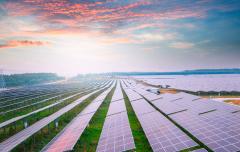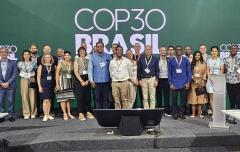From ‘Hard to Abate’ to ‘Priority to Abate’
Heavy industry, including steel, cement and chemicals, produces nearly 30 percent of global CO₂ emissions, yet it remains central to economic growth and development. At the same time, proven technologies such as clean hydrogen, electrified heat, efficiency upgrades and carbon capture can cut emissions across these sectors while sustaining productivity and competitiveness.
But scaling these solutions requires investment. Today, less than 20 percent of global clean energy finance reaches developing economies, and without greater support, industries across Africa, Asia and Latin America will remain locked into high-carbon production for decades to come.





